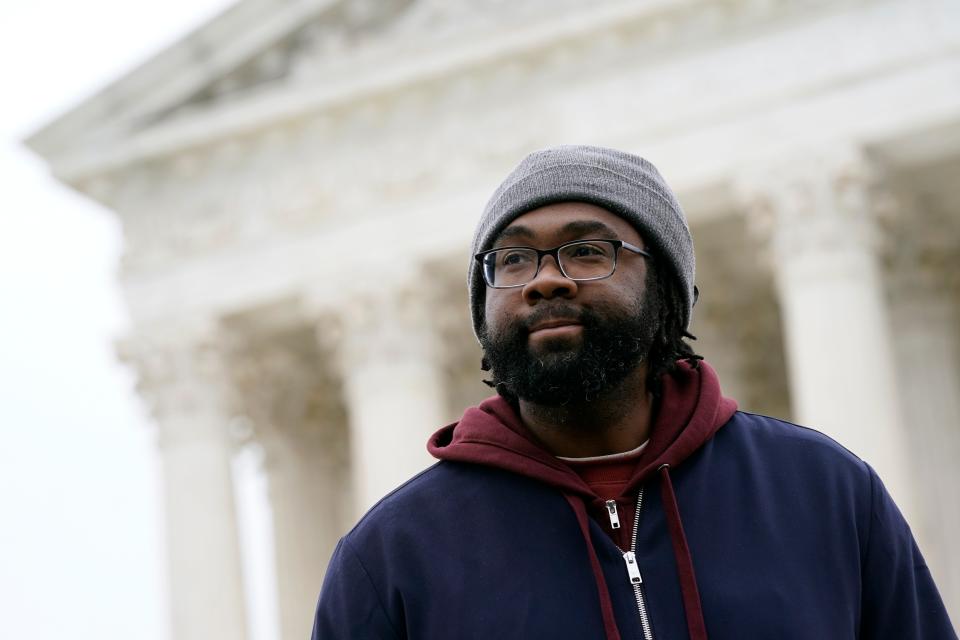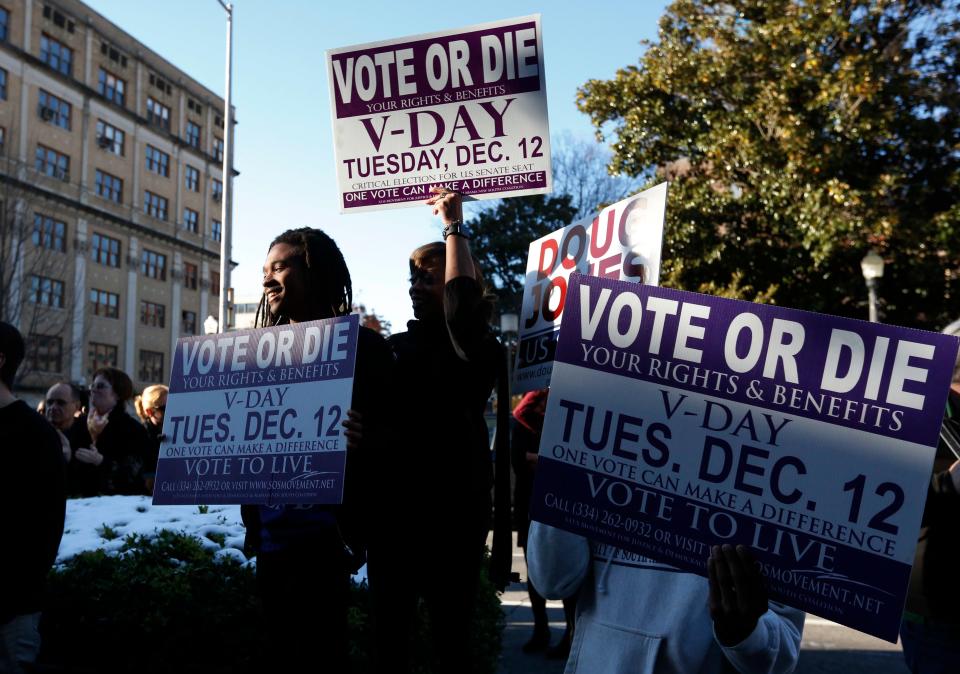An epic Supreme Court fight on congressional districts? Alabama asks court to weigh in
WASHINGTON − The case is about Alabama's congressional districts, but the decision by the Supreme Court could have far-reaching implications for the rest of the nation.
Alabama officials filed an emergency appeal at the Supreme Court late Monday, asking the justices review its controversial congressional map that critics say dilutes Black voting power.
While the lawsuit is technically limited to Alabama, the outcome will affect other legal challenges to congressional districts, particularly in the south. Together, those cases could give African Americans more power to choose congressional candidates − and it could give an advantage to Democrats in the 2024 election.

Did Alabama defy the Supreme Court?
The appeal came days after a federal court in Alabama struck down that state's congressional map for not including a second majority African American district or something close to it. Alabama's map includes one of seven districts where African Americans make up a majority of voters, even though African Americans make up 27% of the state's population.
Voting rights groups claim Alabama ignored a surprise Supreme Court ruling in June that had found the state's maps likely violated the Voting Rights Act.
After that ruling, Alabama redrew its map but − again − included only one majority Black district.
Alabama officials say that to create a second majority African American district would require a "sacrifice" of other priorities, such as keeping similar communities together in the same districts. Without intervention from the Supreme Court, the state said, Alabama's map would be "replaced by a court-drawn map that no state could constitutionally enact. Millions of voters will be placed into congressional districts whose design is dictated...by the race of voters."
The Supreme Court could move relatively quickly on the appeal, potentially within a matter of weeks.

'Shameful and arrogant.' Election attention shifts to Alabama
Earlier this year, David Wasserman, senior editor of the Cook Political Report, wrote that the decision could "send shockwaves beyond Alabama" and "shake up the 2024 battle for the House." Wasserman predicted at that time that the changes could force the creation of two to four new Democrat-friendly House districts.
The case could influence similar legal battles over maps in Texas, Florida, Georgia and other states where the interplay between race, politics and redistricting has been fraught for decades.
Tea leaves: The Supreme Court is unexpectedly siding with voting rights groups. Is that the new norm?
"This is a shameful and arrogant continuation of a sordid history in Alabama that denies equal rights to Black Alabamians, no matter how the United States Supreme Court rules," said Eric Holder, the former attorney general during President Barack Obama's administration and the head of the National Redistricting Foundation, a Democratic group that has supported the plaintiffs in the case.
But Alabama is relying heavily on a concurring opinion by Justice Brett Kavanaugh, who joined the 5-4 majority in June but who expressed reservations. Even if Congress has the power under the Constitution to “authorize race-based redistricting,” Kavanaugh wrote in June, that power “cannot extend indefinitely into the future.”
Alabama officials repeatedly cited Kavanaugh's opinion in its appeal.
"Just as this court held that 'race-based' affirmative action in education 'at some point' had to 'end,' the same principle applies to affirmative action in districting," they told the court late Monday.
This article originally appeared on USA TODAY: Alabama asks Supreme Court to revisit controversial congressional map

